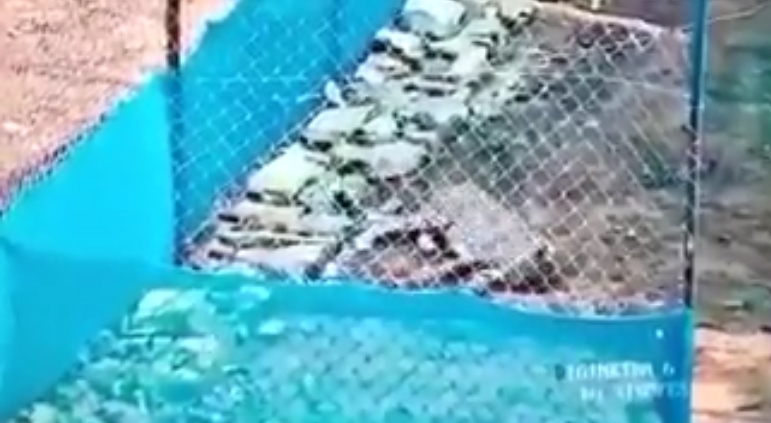Bhopal, July 16 (IANS) The death of two adult cheetahs – Tejas and Suraj – within one week at the Kuno National Park (KNP) of Madhya Pradesh has once again led to a debate over the world’s first intercontinental translocation through “Project Cheetah”.
A couple of Madhya Pradesh-based wildlife officials with decades of experience speaking to IANS maintained that “it is too early to draw any conclusion about Project Cheetah and their survival in India.”
They were also of the view that forest officials and veterinarians associated with the Kuno cheetah project are just following the instructions regarding protocols received from South African wildlife experts and veterinarians.
It is also learnt that wildlife experts are learning the behavior and nature of African and Namibian cheetahs brought to India as they are familiar with tigers and many other wild animals but not cheetahs.
“Monitoring of cheetahs is being done on the basis of instructions and guidance received from South African experts. Prescriptions regarding cheetahs’ health and medicines are received from South Africa, as Indian wildlife experts are not very familiar with their behavior,” said a Madhya Pradesh-based Indian Forest Service (IFS) official.
Alok Kumar, another senior IFS officer, who retired as Chief Principal Conservator of Forest (Wildlife), said cheetahs brought to Kuno have come from a different landscape and climate and they would gradually adopt the Indian climate and environment. He also denied any possibility of a lack in the monitoring of cheetahs at Kuno National Park, adding that the entire world is watching this project and it is a matter of prestige for India.
“Cheetah project is at preliminary stage and therefore it would be wrong to make any assessment as it is intercontinental translocation. At what level we get success in this project, would be clear after four-five years. With regular monitoring of cheetahs, wildlife officials and veterinarians are learning their behaviour on a daily basis,” Verma added.
Two cheetahs – both males brought from South Africa – have died in five days taking their toll to eight – with five adults and three newborn cubs perishing in less than four months. There are now 15 adults and one cub surviving at KNP.
The deaths of these cheetahs have cast doubts over the ambitious intercontinental translocation project. Eight cheetahs were brought from Namibia on September 17 and 12 from South Africa on February 18. Prime Minister Narendra Modi released the first batch of Namibian cheetahs with much fanfare at KNP on September 17, which was his birthday.
However, Madhya Pradesh-based wildlife activists were firm in their view that lack of accountability is damaging Project Cheetah and the Central government and the National Tiger Conservation Authority, the nodal agency for the project should take prompt action.
“We don’t have expertise on cheetahs, that is understood, but what is surprising is that several teams of officials have visited South Africa and Namibia before translocating the cheetahs to India and therefore, the question arises what have they learnt? If we are treating the cheetahs here at Kuno and are depending on medicines from South Africa, then it’s a very dangerous situation,” Pushpendra Dwivedi, a wildlife activist said.

